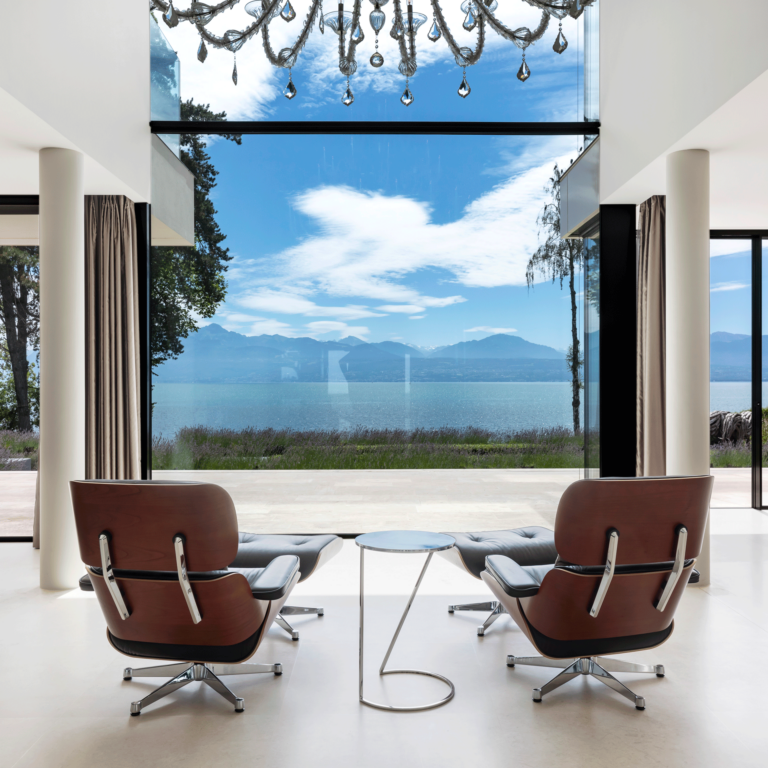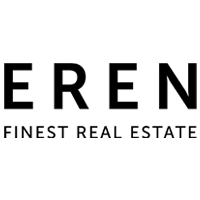Property tax: property taxation in Switzerland
Reading time — 9 minutes

Property tax is one of the things you need to consider if you’re thinking of buying property in Switzerland. With rules that change regularly and obligations that differ from canton to canton, Swiss property taxation can be complex, but is well worth knowing for buyers and sellers alike. Find out what you need to know about property tax, wealth tax, resale duties and taxes, and rental value tax in Switzerland.
How does property tax work in Switzerland?
There are several aspects to property tax in Switzerland. So it’s important for homeowners to take this into account when valuing their property. For buyers, knowing that various one-off and recurring taxes will be added to the purchase price not only helps them to make the right decisions, but also to optimise their financial package to minimise the tax impact.
As soon as the notary’s fees are paid, part of the sums paid go to the tax authorities. In addition, there is property tax, wealth tax and, of course, income tax if there are any gains.
What’s more, the rules are complicated by the sometimes very significant differences between cantons. For example, the tax on property gains in Geneva is different from what you will be charged in the canton of Vaud. What’s more, the amount varies according to the length of time the property has been held.
The FGP Swiss & Alps experts are on hand to provide you with information and advice at every stage of the property buying or selling process.
Taxation of property in Switzerland: property tax varies from canton to canton
Property tax (i.e. tax on the property itself) is not levied everywhere. For example, property owners are not liable for property tax in the cantons of Neuchâtel, Zurich, Glarus, Basel-Landschaft, Zug, Schwyz, Solothurn or Aargau.
Elsewhere, this property contribution is seen as “fiscal compensation for the use of part of the municipal territory”. It is calculated on the basis of the total value of your property, without taking into account any debts incurred to acquire it.
Rental value: a key point in Swiss property taxation
The rental value of a property is another key element in Swiss property taxation. Used to calculate your tax liability, this figure corresponds to the income (actual or potential) represented by your property when it is offered for rent. It is a theoretical value (greater than or equal to 70% of the property’s market value) that takes into account the rents charged in the area, the property’s location, its surface area, the number of rooms, and so on.
The rental value is entered on the first income tax return following the acquisition of your property. It remains there for as long as the property in question is at your disposal or is used as your principal residence. As the “taxable property income” represented by the rental value is considered for all owners, regardless of whether or not they rent out their property, deductions may be made in return. In particular, property maintenance, administration and operating costs can be deducted when calculating taxable income… Or rather, this has been the case until now. The concept of rental value will soon no longer be relevant.
Disappearance of rental value tax in Switzerland
On 14 June 2023, the Swiss National Council adopted a new system for taxing residential property. This abolishes the notion of rental value in the calculation of property tax, while limiting certain deductions.
Until now, an owner who lived in his own property was obliged to declare the rental value as taxable income, even if there was no actual income (the property was not let). This taxable income is calculated on the basis of the theoretical rental value of the property, i.e. 60% to 70% of the annual amount that a tenant would have paid to the owner.
Why tax this notional income? The law regarded rental value as income in kind that the owner enjoyed by occupying the premises, because by living in his own property, the owner pays no rent. Introduced as an extraordinary war tax during the First World War, the rental value tax is no longer in tune with today’s realities. Its critics claim that it acts as a brake on the desire to buy a home in Switzerland, where the proportion of homeowners is much lower than in its European neighbours.
With 58% of its population renting, Switzerland is suffering from a housing shortage that is exacerbated by a system that does not encourage people to buy.
After several unsuccessful attempts, the new proposal to scrap the rental value tax was finally approved by 158 votes to 31 in the National Council. The text will now go before the Council of States, before being put to a popular vote.
Property owners will no longer be taxed on the theoretical amount they could earn from their property if it were rented out. This measure abolishes rental value tax in Switzerland for both primary and secondary residences.
In return, the deductibility of passive interest will be limited to 40% of the taxable return on assets. This decision is intended to reduce the incentive to take on debt. It should also be noted that the deductibility of maintenance costs will be abolished, with the exception of restoration work on historic monuments.
Finally, special treatment has been provided for first-time buyers of residential property for personal use. New owners will be able to deduct their interest liabilities during the first year up to a limit of CHF 10,000 for spouses and CHF 5,000 for other taxpayers. From the second year onwards, the maximum deduction will be reduced by 10% per annum, until the ceiling of 40% is reached.
Property wealth tax in Switzerland
In Switzerland, tax law provides for an annual wealth tax, the rate of which varies from 0% to 1% depending on the canton and the taxpayer’s situation.
Any investment capable of generating income or profits from its disposal is treated as “wealth” in the eyes of the law. Moveable assets such as bank balances, life insurance policies and shares in companies are considered as such. Real estate naturally falls into this category too. Household goods and personal effects, on the other hand, are not subject to wealth tax.
Wealth tax is based on the tax value of your property, determined by a calculation specific to each canton. If you own a property, you must make a declaration to the tax authorities. The tax authorities examine the situation of the owner, as well as the nature and method of acquisition of the property. For example, the calculation of wealth tax takes into account not only the purchase price, but also the presence or absence of a mortgage.
The tax value of your property will be reassessed regularly, but as the owner, you are obliged to notify the tax authorities of any changes. In particular, the carrying out of work that adds value is one of the factors that influences the tax value of your house or flat.
Wealth tax: cantonal disparities
Wealth tax is levied by the cantons, each operating on an individual basis. As a result, the definition of “wealth” and the tax calculations may differ from one canton to another. For example, the canton of Geneva exempts works of art from wealth tax provided that the work in question is displayed at the owner’s home, which gives it the status of movable property. In contrast, the cantonal authorities in Zurich consider all works of art to be part of the taxpayer’s assets.
The same disparities apply to the calculation of real estate assets and the corresponding taxes. Some cantons take the market value into account, while others focus more on the yield value. Deductibles and brackets can therefore fluctuate widely.
Transfer duties and taxation of property gains: a separate aspect of Swiss property taxation
The resale of a property is also subject to specific tax rules, the two main mechanisms being transfer duties and property gains tax.
Transfer taxes in Switzerland
In Switzerland, transfer duties are a form of property tax levied by the cantons or, in some cases, by the municipalities on the buyer (although some cantons also tax the seller). They accompany the transfer of ownership of a building or plot of land from one owner to another. Under Swiss property tax law, this tax is calculated on the basis of the sale price.
It should be noted that this is not the case everywhere. For example, you won’t have to pay any transfer tax when you buy a property in the canton of Schwyz. In the cantons of Glarus, Aargau, Uri, Zurich, Zug, Schaffhausen and Ticino, there is no transfer tax either. You will, however, have to pay transfer or land register fees to the notary.
Property gains tax
Swiss property taxation considers property gains tax to be the main tax payable when an individual sells a property. The rules differ from canton to canton, and the amount is always calculated on the basis of the length of time the property has been held (the shorter the period of ownership, the higher the tax), as well as a tax percentage which, in turn, depends on the scale applied. It should also be noted that if there is no capital gain on the property, no tax is payable to the tax authorities in the canton of residence. Finally, you can benefit from a tax reduction on property gains if you use the profits from the sale of one property to buy another. In this case, tax can be deferred and the deduction is based on the proportion of the profit devoted to the new purchase.
In Switzerland, property gains tax is calculated using the following formula:
(Sale price – Purchase price) x tax rate applied by the canton according to your situation / 100
This will give you the amount of capital gains tax you will have to pay to the tax authorities.
Tax on property gains in Switzerland: rates
Tax rates on property gains can vary significantly from one canton to another. For example, tax on property gains in Geneva is charged at a rate of 50% for the first two years, then falls gradually to 2% after 25 years.
In the canton of Vaud, the scale is more degressive than that of the tax on property gains in Geneva, but never becomes zero. In this case, it starts at 30% in the first year, falls gradually to 15% after 8-9 years and stabilises at 7% after 24 years.
In Fribourg, the tax rate is 22% for up to 2 years, but will not fall below 10% from the fifteenth year.
The amount of tax on property gains depends on the length of time the property has been held. Generally speaking, the more substantial the profit on the sale and the shorter the period of ownership of the property, the higher the amount of tax.
Determining your specific price scale is an important stage in buying property in Switzerland. Your FGP Swiss & Alps advisor will be happy to provide you with all the information you need.
Key facts about Swiss property taxation
The differences in tax bases and rules make Swiss property taxation a complex subject. For property owners, the location of their property, the make-up of their household and even the length of time they have owned their house or flat have a significant impact on the amount of tax they have to pay.
With the disappearance of the rental value tax, the possibilities for tax deductions are even more limited, so tax planning should be a priority for the owner-taxpayer. To optimise your tax burden, you need to ask yourself the right questions at every stage of your life as a buyer, owner and/or vendor.
Do not hesitate to make taxation one of your criteria of choice. Your FGP Swiss & Alps broker will be able to help you estimate as accurately as possible the property tax associated with the acquisition and ownership of a property and inform you about the specific tax situation in the various cantons.
Specialising in rare and prestigious properties, our agency, FGP Swiss & Alps, offers its clients a tailor-made service to meet the high expectations of the luxury property world. With the expertise that has made Forbes internationally renowned, the Forbes Global Properties group is committed to cultivating an in-depth knowledge of the many subtleties of Swiss real estate taxation.
We believe that buying a luxury property should be a beautiful story, imbued with dreams and wonder. By relieving you of a certain pragmatic dimension and taking care to offer you properties that meet your expectations while protecting your interests, we give substance to an authentic vision of the art of living. Time reclaims its rights, allowing you to slow down and appreciate every moment.


